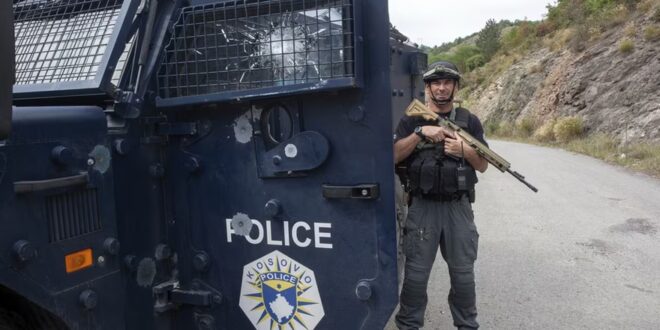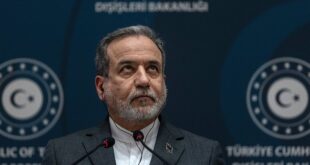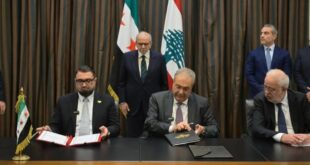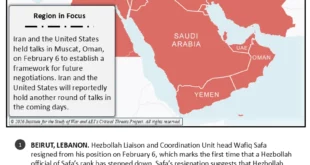SWI swissinfo.ch: Often using military force, Russia has imposed pro-Russian separatist movements in Abkhazia, South Ossetia, Transnistria and, of course, in eastern Ukraine. However, Putin has always defended himself against criticism, claiming that NATO intervened in Kosovo in 1999. Is that comparison fair?
Oliver Jens Schmitt: No, they’re two completely different things. One was a humanitarian intervention to prevent one of the biggest crimes since 1945. The other is a cynical power policy to weaken sovereign states.
Russia is trying to build a theory of international law that deliberately ignores the context. Since the late 1980s, under Milo-evis, Serbia has pursued the objective of discriminating and ultimately expelling the Albanian majority from Kosovo. Serbia has committed the most serious crimes against human rights, with Serbian perpetrators who systematically murdered and deployed sexual violence against the population, destroying 40,000 homes and much of the cultural heritage.
A government that acts like this against its own people loses the right to govern it. The Kosovo Albanians had already declared independence in 1991. NATO’s international intervention in 1999 aimed to protect basic human rights and prevent mass expulsion.
The situation in the territories now effectively occupied by Russia is different. These are former Soviet republics whose borders were once drawn by Stalin with the intention of ensuring that republics such as Georgia and Moldova included areas with minorities that would destabilize young States if they separated from the Soviet Union. That’s exactly what happened. Putin, unlike NATO, did not protect the rights of minorities, but deliberately created conflicts.
Kosovo is a region with contradictory connotations. What does it mean for Serbian memory and what is its importance for Albanian memory?
Until its independence in 2008, Kosovo was not a sovereign State, and before 1945 it was not even a territorial entity. So the term “Kosovo” was more of the image of a landscape. On the other hand, for a long time there was no regional identity, only the perception of a region whose borders were vague.
The Serbs and Albanians tell stories about her that they are similar, in the sense that each excludes the other. In the West, only the Serbian version was known for a long time. And he said: the Slavs arrived in Kosovo at the beginning of the Middle Ages, and in 1389 the Serbs were defeated defending the Balkans against the Ottomans. This gave rise to the myth of the Battle of Kosovo, in which Serbian Prince Lazar was killed in the name of Christianity and the Serbian nation.
This myth spread throughout the Serbian State in the late 19th century to illustrate the Serbian claim of this region. According to the Serbian opinion, the Kosovo catastrophe began with the immigration of Albanians. In this version, they arrived at the end of the 17th century, as beneficiaries of the Ottoman domain. However, historical research shows that Albanians are one of the oldest language groups in Europe and lived in Kosovo long before the Slavs’ immigration. The Serbian ahistoric version states exactly the opposite. In the 1980s, the Serbian Academy of Sciences went so far as to suggest that Albanians were committing a “biological genocide” against Serbs because of their high birth rate.
Serbian President Aleksandar Vu’i recently complained to Vladimir Putin about the alleged ethnic cleansing against Kosovo Serbs. He said this after four died in acts of violence between Serbs armed with criminal connections and the Kosovo police.
Who are the Kosovo Serbs? Kosovo Serbs are essentially divided into two groups: first, those living in settlements scattered in Kosovo. There are no big problems there. It is an ageing population. Many young people leave Kosovo due to lack of prospects, and Serbs are no different from young Albanians in this regard.
Secondly, a larger group lives in a compact way in northern Kosovo, where it forms a State within the State, financed by Belgrade. That offers material advantages. Retirees, for example, receive two pensions, one from Kosovo and one from Serbia. Northern Kosovo is also a major focus of organized crime. There are no police forces in the region. Organized crime groups are keen to prevent the entry of the Kosovar police. When they do, any police action is described as ethnic violence. The above incident made it clear to everyone how closely linked organized crime and political violence are. It was also clear how intertwined these groups of criminal political actors are with the Belgrade government.
The matter gets complicated. To the extent that the Serbian Constitution attaches great importance to Kosovo – an independent State – and all Serbian institutions are committed to the goal of getting Kosovo back under the control of the country. Serbian nationalism and myth are obstacles on Serbia’s path to the rule of law and democracy. Serbia is far from it right now.
Serbia is economically dependent on Russia. Has Kosovo’s external vision changed since the Russian war of aggression in Ukraine?
At first it was believed that Kosovo would benefit from geopolitical change, because Ukraine’s relationship with Russia has many similarities to Serbia’s relationship with Kosovo: Russia and Serbia dispute not only the status of state of the other country, but also its existence as a people. They intend to dissolve the other people, integrate them into their own territory or expel them. There are even Serbian theories that Albanians are actually Serbs converted to Islam.
But until the violence of the Serbian extremists in September 2023, it was the Kosovar government that was rather isolated, because the Serbian government has a good connection with the United States thanks to supplies of ammunition from war to Ukraine. He, who also leans ideologically towards Russia, is not a Democrat, but an authoritarian ruler who acts brutally in the domestic sphere. The fact that the West courteses him is also dangerous because Kosovo is the only democracy that works in the region. Ukrainians rightly say they stand up for Western values like democracy. By positioning itself in favour of Vui, the West, and especially the United States, is harming Kosovo, where these values – with the support of Western states – are more respected than in Serbia.
Does the development of democratic institutions in Kosovo consider positive since independence in 2008?
Kosovo now has a vibrant party landscape. Meanwhile, countries such as Serbia and Albania have lagged behind in democratic development. Either the elections are not free, or the opposition does not accept the results and block Parliament, at least temporarily.
There is no doubt that there are still many regrettable things in Kosovo, such as the widespread corruption of State agencies. But we must remember where this State departed from: a population traumatized by oppression, war and expulsion; a country that had suffered widespread devastation in all aspects. The litmus test of any democracy is whether a government that has been expelled accepts its defeat. Even if Albin Kurti’s government is the subject of heated debate, it is possible to change government through elections. Society is not caught in an authoritarian mindset, as continues to be widely the case in Serbia or Albania.
Switzerland recognized Kosovo’s independence last month when it was announced. It seems to be one of the few moments when Switzerland took a foreign policy position. What’s left of it?
The recognition was clumsy because it was spontaneous and did not frame itself in any strategy. Today, Swiss diplomacy in Kosovo is not very visible, given the importance of Switzerland in Kosovo and the Kosovar diaspora in Switzerland. It’s less active than Austria. Swiss politicians, for example, barely let themselves be seen by Kosovo. Albin Kurti, on the other hand, interferes with the Swiss election campaign on behalf of his associate party, the Social Democratic Party. However, Switzerland should be interested in providing some information to the people of Kosovo, especially about the Swiss political system.
Why is that?
During my last visit to Kosovo, I realized that Islamist ideas were spreading among the younger generation. This development is also of concern to the secular majority in Kosovo.
The West has some responsibility for the rise of Islamist currents. Kosovo was the only country in the western Balkans where its inhabitants were long not granted the freedom to travel without a visa. On the other hand, Kosovars could travel mainly to Islamic countries, and they supported them very actively, for example, through scholarships. So in the West we should not be surprised that young people are returning from Turkey or the Gulf countries with the mentality of the regimes there. The same States have also invested in schools, universities and hospitals in Kosovo.
Kosovo is small. With manageable but concentrated use of funds, but also with stronger political gestures, rich countries like Switzerland could achieve a lot. However, I have the impression that Swiss politicians are looking the other way. From the left to the right, there is still no coherent strategy on how to treat the large Kosovar diaspora. While the Kosovars know a lot about Switzerland, even the representatives of the Swiss elite have no idea about Kosovo.
 Eurasia Press & News
Eurasia Press & News



